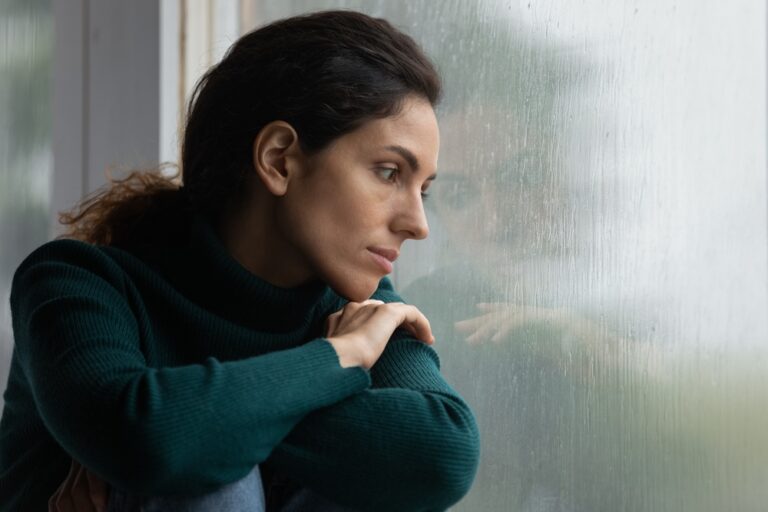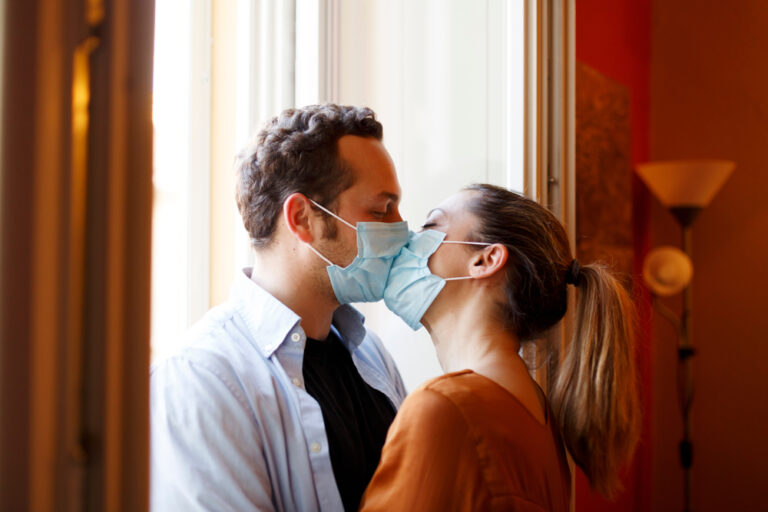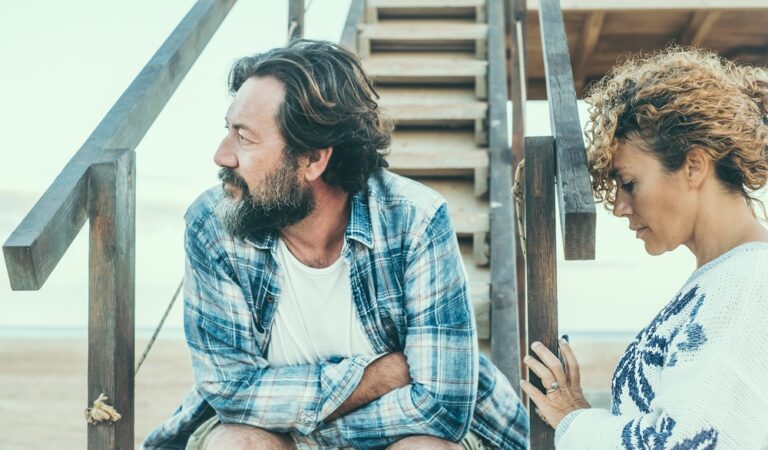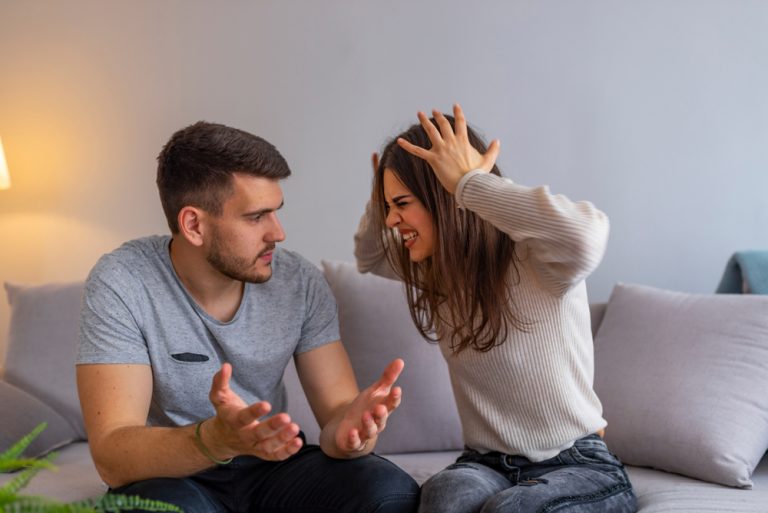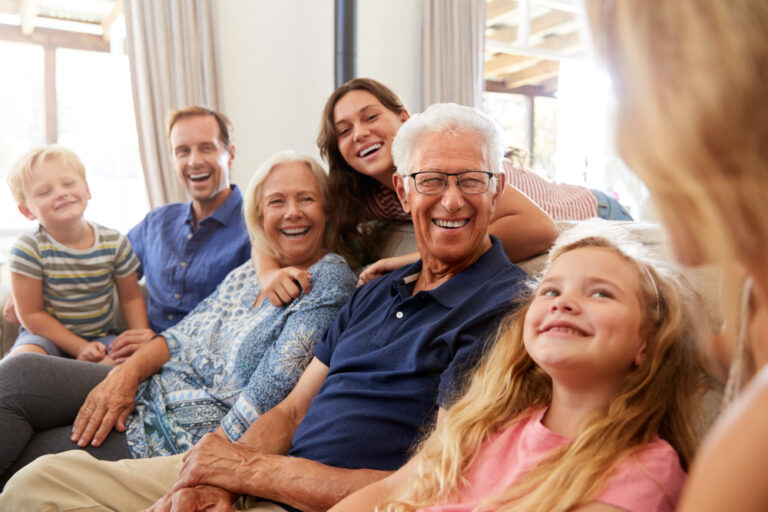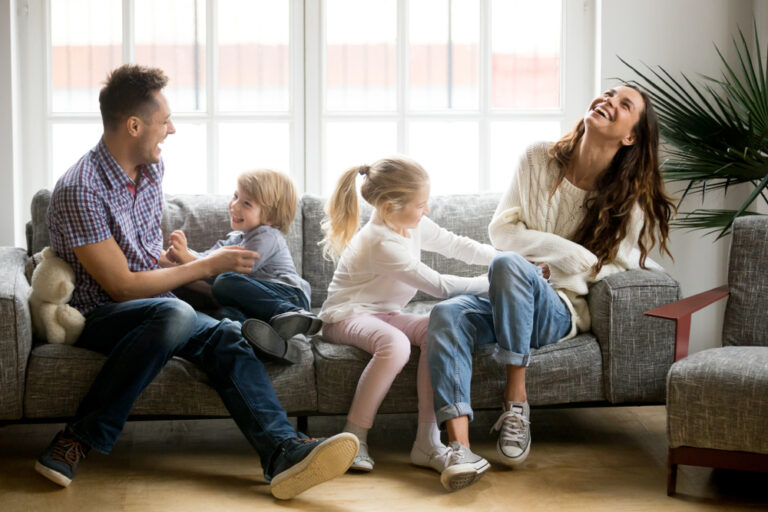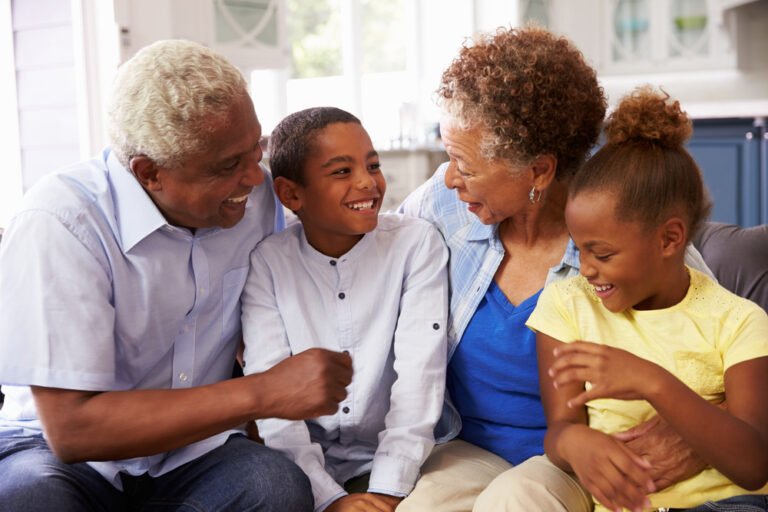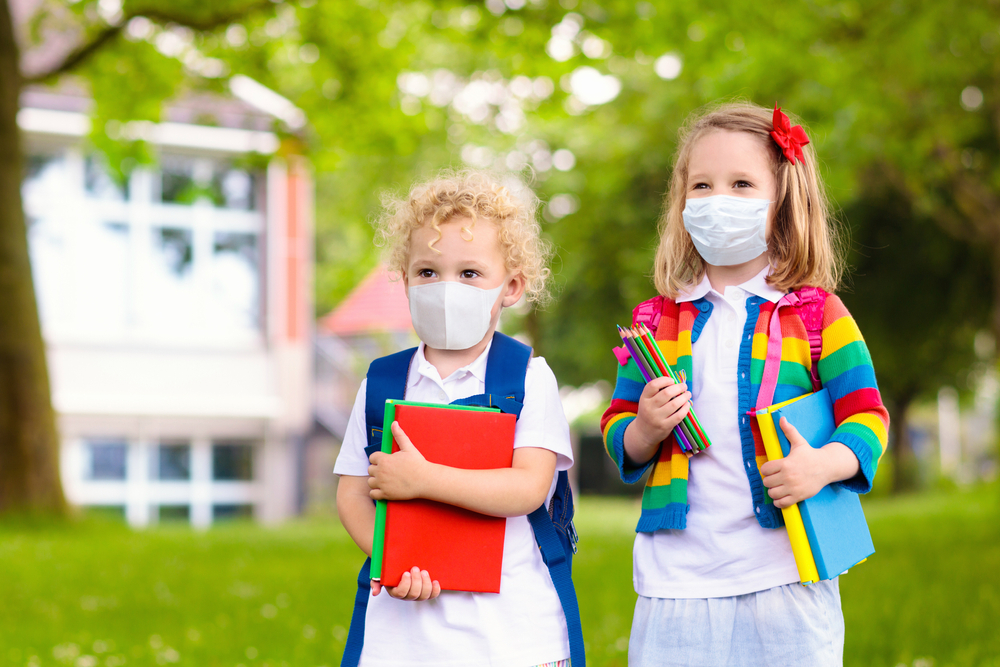
As a parent, you have to find an answer to millions of questions every day, so it can feel overwhelming, especially when your children ask you questions about COVID-19 and you don’t know the exact answer.
It’s very important to talk to them about the impacts of the virus, but you have to do it in a manner that won’t make them feel more worried than they already are. Coronavirus has changed their lives too, not just yours. They can’t play with their friends like they used to, can’t go to school, can’t go to birthday parties or even celebrate their own birthday with family and friends.
So it might be even harder for them to cope with the virus, especially if you don’t like to talk to them about it. Read on and find the best tips from specialists on how to talk to your kids about COVID-19.

What most kids are thinking during coronavirus
According to Sanam Hafeez, a neuropsychologist specializing in child development and a faculty member of Columbia University in New York City, this is a highly discussed topic all over the world right now, as many parents are struggling to explain to their kids what coronavirus is and how it works.
“Although kids can be very observant and pick up on what’s happening, they haven’t had the life experiences necessary to understand what’s going on, the way adults do,” she says. “It can be easy for them to misinterpret a situation or become frightened when they don’t have enough information about it, which is exactly why it’s so important that parents are talking about the coronavirus pandemic with their children.”
According to Robert Hamilton, MD, a pediatrician at Providence Saint John’s Health Center in Santa Monica, California, founder of the charity Lighthouse Medical Missions, author of 7 Secrets of The Newborn, and host of the podcast The Hamilton Review: Where Kids and Culture Collide, “Children’s brains work differently than adult brains.”
Young kids
According to Dr. Hamilton, you have to be very specific when talking to young kids about the virus. They are usually very concrete thinkers and need solid answers, so hoping they’ll figure out on their own is not an option. Also, young kids do not understand pretty well the time notion, so don’t try to talk to them about the past or what might happen in the near future.
Kids need accurate answers and they’ll be inclined to believe everything you say to them, so make sure you tell them the truth. Hamilton suggests giving them age-appropriate answers.
Older kids
Dr. Hamilton explains that even teens might have a difficult time adjusting to the virus and not process the information in the same way as you do.
“Puberty hormones can make them more emotional or withdrawn. Their brains don’t finish developing until about 25 years old,” he says. “You should be open, honest, and frank with kids of all ages. This is not the time for sarcasm or hyperbole.”
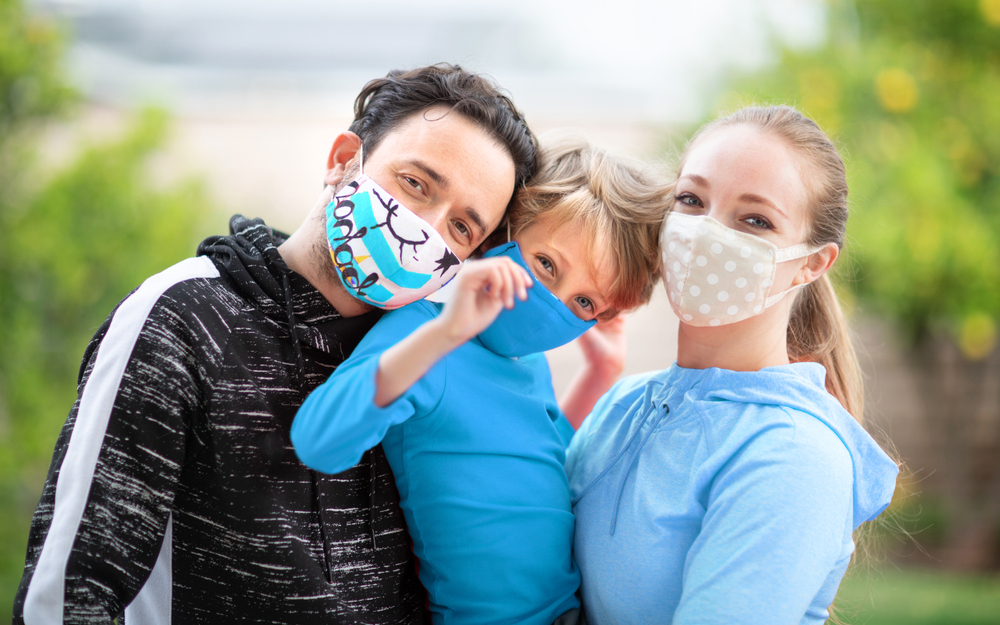
How to talk to your kids about COVID-19
You can start by having a sincere conversation about the virus and everything there is to know about it, like the symptoms for example. As a parent, it’s your job to make sure your kids have the information they need, Dr. Hamilton says.
Encourage them to talk and ask questions, and make sure to provide the right answers for them. Take their concerns very seriously. Your main goal should be to make sure your kid has the right fact-based information and not believe everything they hear from friends. But don’t offer them too much information because it may get overwhelming for them.
“COVID-19, germs, and disease may be something your child knows nothing about so you may need to start with the basics,” Hafeez says.
Also, don’t be afraid to say “I don’t know” when you can’t answer their questions. I know you probably want to tell them that everything will be better soon, even if you’re not sure about it. However, it’s very important to teach your kid how to cope with uncertainty.
Give them answers in accordance with their age and maturity level. “Every child is different, so tailor your conversations to your child’s developmental level and needs,” she says.
Don’t be afraid to talk to them, because if you’re anxious your kids will probably be anxious as well. “If you have a lot of worries or are upset, find another adult to talk to, not your child,” Dr. Hamilton says. Additionally, you need to be careful about what they overhear.
According to Dr. Hamilton, your kid needs physical touch, so don’t hesitate to give him/her a hug or a pat on the arm when you feel like they need it. “Hugs, snuggles, a pat on the arm can all be very comforting and reassuring while you have this discussion,” he says.
Also, it’s not enough to have just one conversation about COVID-19. You have to constantly talk to them about it, see if they have other questions, and frequently ask them how they feel.
“You should discuss COVID-19 and other related issues with your child whenever they have questions. Chances are, your children will have a lot of questions, so be ready to answer them openly and honestly,” Hafeez says.
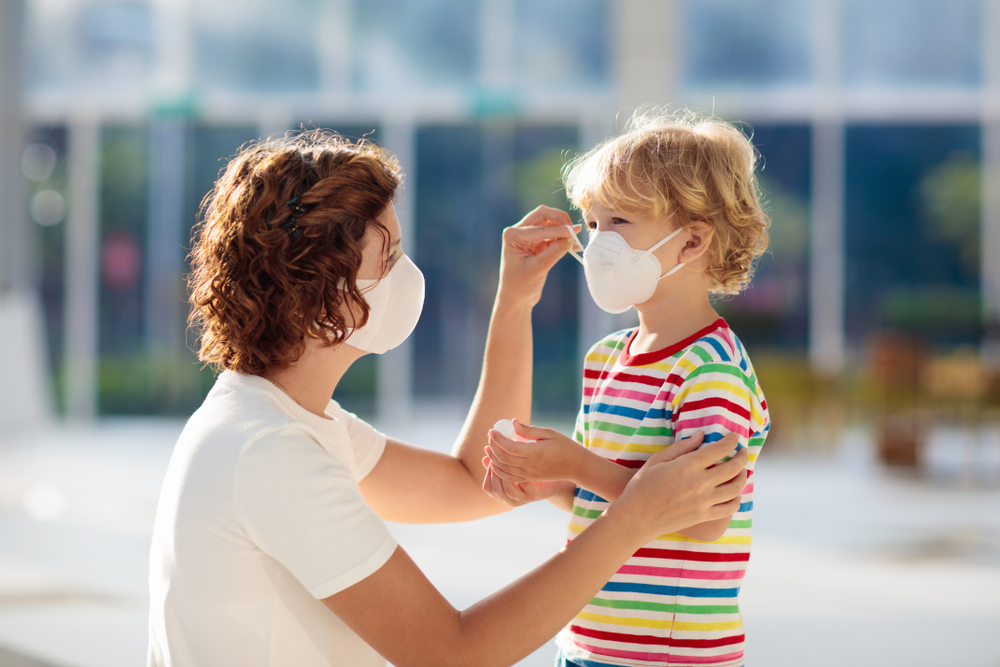
How to answer the most asked questions
It’s normal to feel overwhelmed in these harsh times, this pandemic isn’t easy on anyone. Especially when your children ask you questions that don’t have an answer. And let’s face it, most of us aren’t experts in child development.
To help out, experts gave an answer to the most asked questions that kids have these days.
Will I die?
According to Dr. Hamilton, even if kids don’t ask that directly, they’re surely thinking about it.
For young kids: “Children almost never die of this illness, you will be OK and I’m here to take care of you.”
For older kids: “Everyone gets sick from time to time but let’s look at the numbers for your age group together. It’s very rare in teens but if you do happen to get it, I’ll take care of you and so will the doctors and nurses.”
What happens if you get sick?
According to Hafeez, kids often feel frightened just thinking about something bad that might happen to their parents.
For young kids: “I’m an adult and you don’t need to worry about taking care of me. If I get sick I’ll be OK although I might have to stay in bed for a little while.”
For older kids: “I’m an adult and you don’t need to worry about taking care of me. But let’s make a plan for what to do if I do become ill. I likely wouldn’t get a very bad case but here’s a list of people you can call for help, including the doctor and nearby relatives.
Why can’t we go see grandma? What if something bad happens to her? What if she dies?
Your kids probably know already that older people are the most vulnerable in battling coronavirus, and you need to make sure they understand why is so important to social distance and wear a mask, Hafeez says.
For young kids: “We need to protect your grandparents which means we can’t visit them for a while. If grandma or grandpa gets sick, it doesn’t mean they will die. But, if they do, then that’s going to be a really hard and sad day for everyone but the family will be OK and we will get through it together.”
For older kids: “Grandma has diabetes which does put her at a higher risk which is why we are extra careful to protect her. However, everyone dies sometime and it will be something we have to work through together as a family. Why don’t we write a letter to grandma telling her some of your favorite memories or get on a video call with her?”
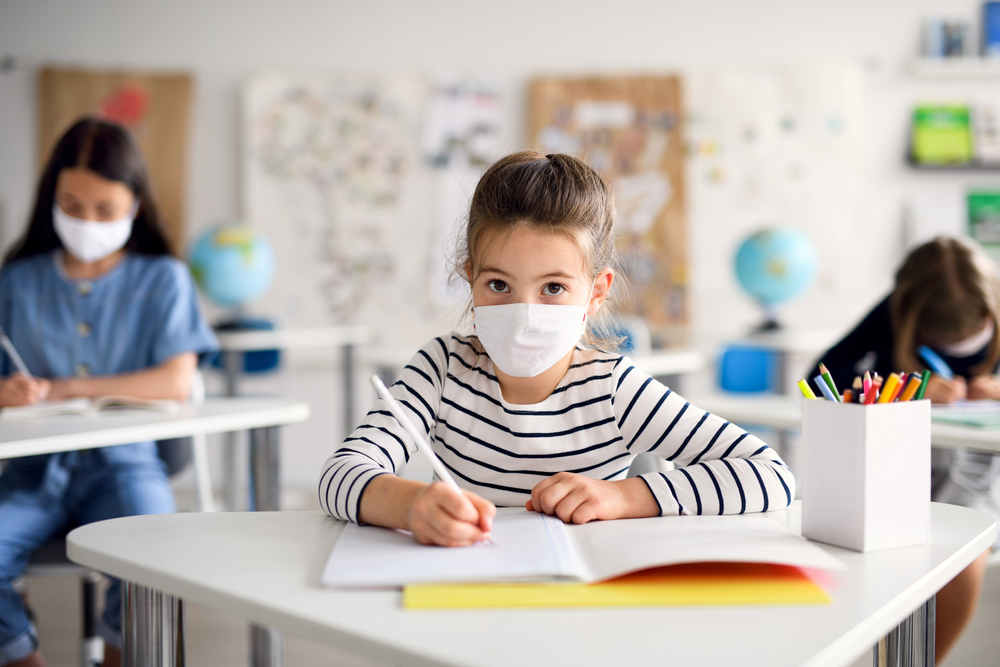
Is going back to school safe?
Returning to school in the context of a global pandemic is definitely not easy for kids and can cause them a lot of anxiety, Dr. Hamilton says.
For young kids: “You don’t need to be afraid. You can trust your teachers and us to make the best decision to keep you safe and help you learn.”
For older kids: “Yes, school is very uncertain right now and there might be a lot of changes during the school year. What exactly are you concerned about? Here are some things we can keep normal and here are some ways we can adjust if need be. This year will probably be a tough one but the pandemic won’t last forever.”
Do I really have to wear a mask?
It is normal for kids to be reluctant, especially if they don’t understand why they have to wear a face mask and social distance. But if you talk to them about the reasons behind it, I’m sure they’ll understand.
For young kids: “Yep, this isn’t fun but it is something we need to do to help keep everyone safe and healthy. It’s just like wearing a seatbelt or a life jacket. Let’s make a game to see who can keep their mask on the longest without touching it.”
For older kids: “The rule now is that this is something everyone needs to be doing every time they are in public, even if it’s not totally comfortable. If everyone wears a mask it can reduce transmission of the virus to very low levels. You may not feel sick but kids your age can carry the virus and spread it to others without knowing it so it’s better to be safe.”
Why can’t I have a birthday party?
For kids, not having a birthday party might feel like the end of the world, and let’s be honest, it’s sad for us, parents, too. We want our kids to have fun and enjoy their birthday with family and friends, but unfortunately, that’s not possible right now.
For young kids: “This is a sad thing! But nobody is supposed to be having birthday parties, or any parties, right now. It’s to help keep everyone safe. Let’s talk about some things we can do at home to make that day extra special.”
For older kids: “This isn’t fair at all and I’m bummed too that you can’t have a party this year. This won’t last forever though and next year we’ll make it extra great. What are some things I can do to help you feel loved this year?”
Mommy, it’s normal to feel so anxious about this? Is there something wrong with me?
The coronavirus pandemic is hard for people of all ages, children included. That’s why it’s so important to talk to them about this topic, Hafeez says.
For young kids: “It’s normal to worry about this stuff. If you feel scared or have a nightmare, come get me and we can snuggle.”
For older kids: “Some worrying is normal but if you are feeling anxious all the time and it’s negatively affecting your life, we can talk to your doctor about other ways to help you. Know that I’m always here to listen. Let’s think of some ways we can help other people, that always helps me break the cycle of anxious thoughts.”
























